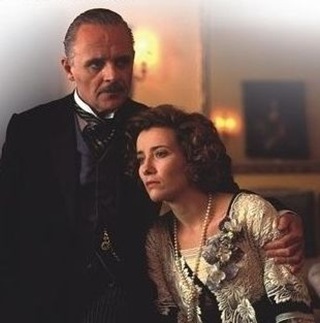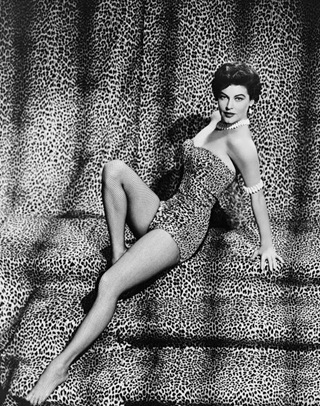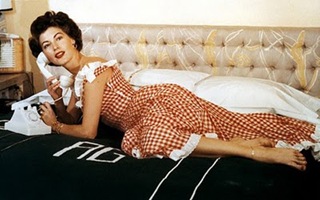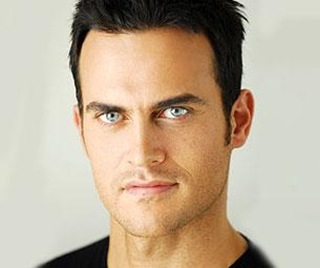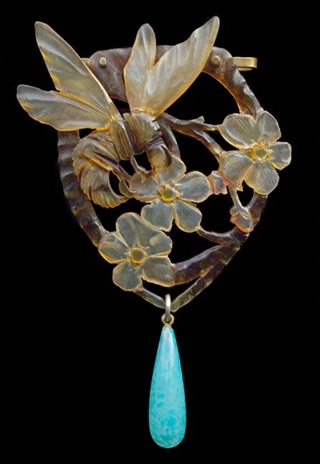Saturday, February 26, 2011
TOP 20 ROMANTIC CITIES IN THE US
Amazon.com has unveiled its list of the Top 20 Romantic Cities in America.
Alexandria, Virginia, retained its top spot as the America's most romantic city for the second year in a row, while El Monte, California; Paterson, New Jersey; and Miami Gardens, Florida became the least romantic cities.
1. Alexandria, Va.
2. Knoxville, Tenn.
3. Orlando, Fla.
4. Miami
5. Ann Arbor, Mich.
6. Columbia, S.C.
7. Cincinnati
8. Murfreesboro, Tenn.
9. Gainesville, Fla.
10. Tallahassee, Fla.
11. Vancouver, Wash.
12. Round Rock, Texas
13. Pittsburgh
14. Salt Lake City
15. Arlington, Va.
16. Las Vegas
17. Clarksville, Tenn.
18. St. Louis
19. Dayton, Ohio
20. Frisco, Texas
ANTHONY HOPKINS : 10 UNFORGETTABLE ROLES
MAGIC (1978) The character actor and star of television films made his big-screen breakthrough as a lead actor in this Richard Attenborough thriller. Hopkins's dark turn as Corky the psychotic ventriloquist foreshadows his later scene-stealing as a certain cannibalistic psychiatrist.
THE ELEPHANT MAN (1980) Hopkins plays a sympathetic doctor who rescues and tries to lend dignity to the hideously deformed title character in this drama based on the true story of Joseph Merrick. The film was nominated for a Best Picture Oscar.
THE BOUNTY (1984) In the fifth film version of the 1789 mutiny on the Bounty in the South Seas, Hopkins portrays Captain Bligh to Mel Gibson's Fletcher Christian. The film got mixed reviews, generally earning praise for its historical accuracy and realism, but disappointment in its distinguished cast, which included Laurence Olivier, Daniel Day-Lewis and Liam Neeson.
SILENCE OF THE LAMBS (1991) Hopkins won the Best Actor Oscar for his tour de force as the cannibalistic serial killer Dr Hannibal Lecter, and the film swept the four other major Academy Awards, for Best Picture, Best Director (Jonathan Demme), Best Actress (Jodie Foster) and Best Adapted Screenplay. Portraying the mind-manipulating psychiatrist let him excel in both his preparation and improvisational skills, and he reprised the role in the sequel Hannibal (2001) and in the prequel Red Dragon (2002).
HOWARDS END (1992) In the third Merchant-Ivory production of an EM Forster novel, Hopkins stars in a tale of class relations at the end of the 20th century with Vanessa Redgrave, Helena Bonham Carter and Emma Thompson. The film and its cast earned much critical acclaim, and Thompson won the Best Actress Oscar.
THE REMAINS OF THE DAY (1993) Hopkins displays his stage discipline in the utter focus and emotional repression of the butler Stevens, who sacrifices his all to service and realises too late that he let the love of his life (Thompson, co-starring again) slip away. The Merchant-Ivory film was nominated for eight Academy Awards but won none.
LEGENDS OF THE FALL (1994) In a sprawling story of love, betrayal, corruption and family bonds in the US West, Hopkins is both taciturn and emotional as Colonel Ludlow, starring with Brad Pitt and Aidan Quinn as two of his conflicted sons. He gets to ham it up as a stroke victim with a scrunched-up face, slurred speech and a pronounced limp in the second half of the film.
NIXON (1995) Critics either loved or hated Hopkins's portrayal of the US President Richard M Nixon in this Oliver Stone biopic, with some saying he nailed the complex and flawed character and others saying he veered off into camp. Hopkins received a Best Actor Oscar nomination and the film got largely positive reviews, although it was a commercial failure.
AMISTAD (1997) Hopkins astounded the cast and the director Steven Spielberg by memorising a seven-page courtroom speech and delivering it in one take. He got his second Oscar nomination for playing a US president, this time John Quincy Adams, who (after his term in office) passionately defends African slaves who mutinied aboard the ship Amistad in 1839.
THE MASK OF ZORRO (1998) Hopkins plays Don Diego, the original Zorro, to Antonio Banderas as his hand-picked successor in what the US critic Roger Ebert called "probably the best Zorro movie ever made". Hopkins relished the swashbuckling action role, quite a change of pace for him.
LANGUAGE TRIVIA ... WORDS WITH DOUBLE LIVES
A number of place names throughout the word also have another existence.
Limerick – a humorous verse
Morocca – a soft leather
Pacific – useful
Scotia – a concave moulding
Surrey – a light carriage
Texas – the uppermost structure on a steamboat
Tripoli – a soft, friable rock
Ulster – a long loose overcoat
Wales – marks with welts
Yonkers – young gentlemen
HITCHCOCK NEVER WON AN OSCAR
“Everything’s perverted in a different way, isn’t it?” — Alfred Hitchcock
Do you ever wonder why some of the greatest performers and directors of all time have never won an Oscar? It certainly has nothing to do with lack of talent. For example, the man considered the greatest director of all time, whose films have affected millions and changed the history of cinema, never received an Academy Award for best director.
In a career spanning half a century (1925-1976), Alfred Hitchcock completed 53 feature films - 23 British and 30 in America after moving to Hollywood. Hitchcock is routinely and without doubt listed as the best film director of all time. His films are heralded as some of the most influential movies ever made—affecting the directing styles of other directors around the world who are now considered masters themselves.
Hitchcock received accolades and awards that, if piled together, would form a vast mountain. Only one award escaped him — an Oscar for best director.
As curious as this seems, it is not all that surprising. The Academy Awards have always been drenched in political wrangling where the factors of who and what film receives an award often seem inconsequential. After all, what does being a “sentimental favorite” have to do with judging talent? In the process, the Academy of Motion Picture Arts and Sciences has missed some big ones — including, among others, the failure to award the best picture Oscar to Orson Welles’ Citizen Kane, now acknowledged as the best film ever made. One wonders how many great artists and their films are being overlooked by the Academy as it prepares to hand out another batch of gold-plated statuettes.
Hitchcock was a master of cinema. Many of his films are without equal. Rebecca is a gorgeous Gothic women’s picture; Notorious is a tragic love story; Under Capricorn, a rich account of emotional self-sacrifice; Strangers on a Train, a key exposition of the madman hero; Rear Window and Vertigo, superb commentaries on watching film; The Wrong Man, an exemplary study of chance and routine in conflict; North by Northwest, a brilliant view of a frivolous Cary Grant being sobered by feelings; Psycho, a scream of horror at the idea of madness; and The Birds, an audacious use of science fiction apocalypse to dramatize intimate emotional insecurity.
These are ten films that are masterly produced and demand endless viewing. Indeed, in my opinion, Vertigo may be the best film ever made. Incredibly, however, it did not receive an Oscar nomination for either best film or director.
Hitchcock not only created great films, he also raised some actors to mythic status. This is certainly the case with Cary Grant in Suspicion, Notorious and North by Northwest; James Stewart in Rear Window and Vertigo; Anthony Perkins in Psycho; Grace Kelly in Rear Window and To Catch A Thief; and Tippi Hedren in Marnie and The Birds.
Film was Hitchcock’s world. And his method was to lose himself in meticulous planning — so much so that the actual shooting of the film became a chore. In fact, Hitchcock was heard to say on numerous sets, “The actors are here. Now the fun is over.”
Hitchcock, writes film historian David Thomson, had “the style of an immense, premeditative artist — much like a Bach, a Proust, or a Rembrandt.” And he had an obsession with control, which characterized his methods of filmmaking: his preoccupation with a totally finalized and story-boarded script and his complete domination of actors and shooting conditions.
Hitchcock aimed his films at the audience. He used our impulses and fantasy lives, wove them through his plots and filmed his movies as if they were dreams. He was a man of moral seriousness who understood the modern condition of anxiety and fear. Hitchcock showed us the violent, psychotic fruits of our impulses. And in his films, Hitchcock’s characters shared their impulses with us.Hitchcock was a dark genius. But like all of us, he was human. He felt fear, angst and a need for recognition.
Recognition of sorts finally came in 1968 when Hitchcock’s best work was behind him and he had partially withdrawn from working. His spirits were lightened somewhat when it was announced that the Academy would be awarding him the Irving G. Thalberg Memorial Award “for the most consistent high level of production achievement by an individual producer.” As Hitchcock might have rightly guessed, however, this was something of a consolation prize from the embarrassed Academy after years of slighting him. Although Hitchcock had been nominated five times for best director, he had been repeatedly denied the Oscar.
When Hitchcock’s name was announced at the Oscar ceremony, he slowly walked down the aisle amid a standing ovation. As the fanfare subsided, everyone awaited a witty, offbeat Alfred Hitchcock speech—the kind they knew him for from television and banquets. Stepping to the microphone, Hitchcock said “Thank you” with no expression, turned and slowly walked back to his seat.
Obviously, the brevity of Hitchcock’s remarks bespoke, some believed, a quiet, lightly-veiled contempt. And according to his friend, playwright Samuel Taylor, they were correct: “Hollywood never knew what a great artist he was. Under the proper circumstances, Hitch should have been nominated for every Director’s Guild award and every Oscar. The basic hypocrisy of Hollywood is that they don’t really believe film is art. Hitch knew all this.” - By John W. Whitehead
Hitch received 5 Best Director nominations for Rebecca, Lifeboat, Spellbound, Rear Window, and Psycho. His total number of Oscar nominations (including winners) = 50. Rebecca is the only film he directed that won Best Picture.
SUPERSTITIONS … X ON YOUR PALM
The number of Xs in the palm of your right hand is the number of children you will have.
CHEYENNE IN BROADWAY’S “THE NORMAL HEART”
Cheyenne Jackson is in talks to join the first Broadway production of The Normal Heart, Larry Kramer's landmark play about the early years of the AIDS epidemic, reports The New York Times.
Joe Mantello, a Tony award-nominated actor for Angels in America and Tony award-winning director of Take Me Out, will play Ned Weeks, the play's protagonist, based on Kramer. Love! Valour! Compassion!'s John Benjamin Hickey will play Ned's lover, Felix Turner. Ellen Barkin will make her Broadway debut as Emma Brookner, the wheelchair-bound doctor who realizes the seriousness of the AIDS crisis. Jackson will likely play Tommy, an activist. The production will be directed by Oscar- and Tony award-winner Joel Grey.
The Normal Heart will begin preview performances at the Golden Theater on April 19 and open on April 27, a day before the deadline to qualify for Tony award consideration. Kramer's play first opened on April 21, 1985 and ran for 294 performances. The revival follows an acclaimed staged reading of the play in New York last October, which raised $150,000 for charity.
A film adaptation to be directed by Ryan Murphy with Mark Ruffalo attached to star is in the works.
TRIVIA BITS ... TSUNAMI
A tsunami can be more deadly than an earthquake. Moving rapidly across the across the ocean and gaining height as it moves into shallower water, a tsunami had huge destructive power when it hits the shore and can travel far inland. The tsunami form the earthquake that occurred off the coast of Sumatra, Indonesia on December 2006, hit the coastlines of several Asian countries and killed more than 250,000 people.
RADCLIFFE PREPARES FOR BROADWAY MUSICAL
Daniel Radcliffe (front and center), rehearsing How To Succeed in Business Without Really Trying, with John Larroquette behind him
Jon Hamm, move over. The latest looker to leap back into the 1960s: Daniel Radcliffe, who is assuming the musical role of quintessential company man J. Pierrepont Finch in the new Broadway revival of the 1961 classic How to Succeed in Business Without Really Trying.
As shown in these rehearsal shots, Radcliife is already off and running ahead of the chorus. As Finch, he starts in the mailroom of Manhattan's World Wide Wicket and works his way up the corporate ladder.
En route, he meets the adoring secretary Rosemary Pilkington – played by Philadelphia-born Rose Hemingway, in her Broadway debut after touring nationally in Mamma Mia. She's also appeared at London's Donmar Warehouse and Los Angeles's Mark Taper Forum.
Rose Hemingway
In the production, which marks Radcliffe's return to the Great White Way for the first time since starring in a 2008 revival of Equus – Anderson Cooper narrates Finch's meteoric rise ... and fall.
"Anderson Cooper just always stood out for me," the Harry Potter star, 21, says on the How to Succeed Web site about the CNN anchor. "He always had this kind of really cool ... playful glint behind his eye, I think, which I always found quite funny."
Also in the cast: John Larroquette, as J.B. Biggley, the boss of the World Wide Wicket Company, who admires Finch's fortitude. Previews begin Feb. 26 at the Al Hirschfeld Theatre, with the opening night set for March 27.
Coincidentally, Radcliffe's role made a star of Robert Morse when he originated J. Pierrepont Finch in the original How to … 50 years ago (and in the 1967 movie) – and, today, Morse, 79, memorably stars on Mad Men, as the advertising company's founder, Bertram Cooper.

















